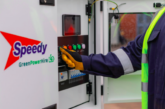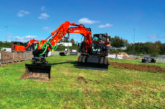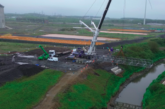Suneeta Johal, Construction Equipment Association CEO, comments on the appointment of the new Prime Minister, Liz Truss.
As we welcome Liz Truss as our new Prime Minister, we as an industry are looking for swift action to protect our sector from irreparable damage. Truss is presented with the opportunity to transform the construction sector, ensure our industry is fit for the future, and provide the necessary support to lead us on the path to net-zero emissions by 2050.
Recent months have seen setback after set back which is crippling UK businesses. Soaring energy costs and the recent announcement that the price cap is not being extended to businesses was yet another blow. Companies are fearing their energy costs could go up by as much as 300%, which is simply not sustainable. We need immediate action from Government to introduce a business energy price cap and reduce the VAT on business energy bills.
On the issue of rising energy bills, Truss says she will “deliver” when it comes to crisis by not only dealing with bills but also the long-term supply issues – this must be extended to and include businesses.
The rising energy costs have been compounded by the steep price increases in fuel, although this has stabilised at source, it’s not being passed on to the consumer. The construction industry is also bearing the brunt two-fold with the end of the red-diesel rebate.
The Government has committed to achieving net zero by 2050. It has also stated that its target is to decarbonise the power system by 2035. It has been estimated that around £40bn per year would be required (on average) to be invested in new low carbon and digital infrastructure over the next ten years. There is a significant gap between the Government’s objectives and the practical policy that is needed to provide confidence and positive, clear signals to potential investors. Introducing a long-term capital allowance regime will drive investment in greener technologies, and clean technology, which will in turn reduce energy consumption.
Supply chain challenges remain critical, and this has been further impacted by strike action at ports – many businesses will be looking at ‘reshoring’ which could futureproof them against future supply chain issues but ‘moving manufacturing closer to home’ will require the Government to facilitate with further tax breaks making it more achievable to invest in local facilities, new technology, strategy replanning and of course, a company’s most important asset – people.
There’s certainly a lot to be done and we as a sector have a considerable ‘ask’ wishlist – and will be actively talking to HMG to expedite the reforms we as an industry desperately need.










